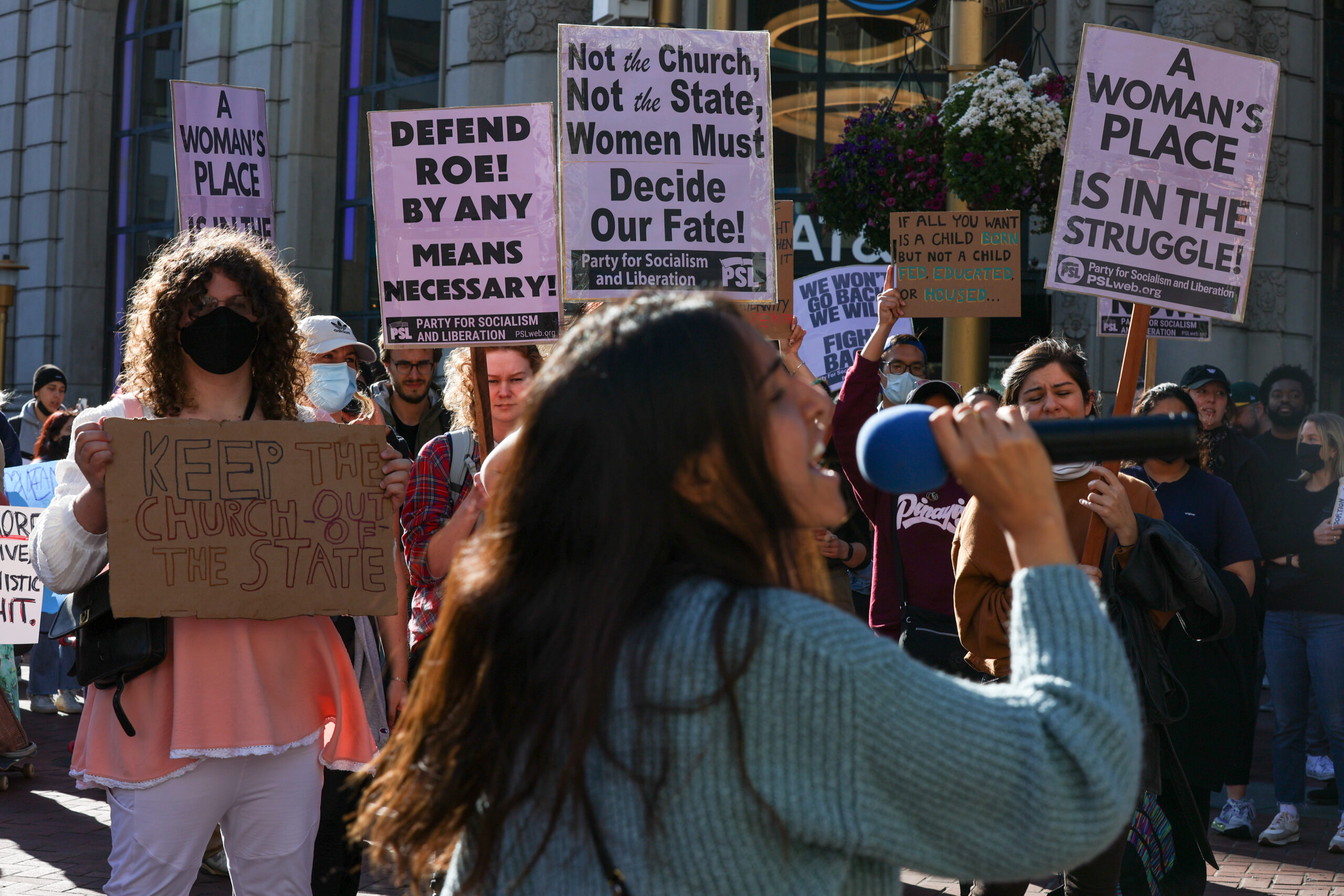A draft of a Supreme Court opinion striking down the nearly half-century precedent established by Roe v. Wade has already sent shockwaves through San Francisco and the nation.
But the prospective ruling, which would strike down the right to an abortion under federal law, also raises questions for major San Francisco companies with employees in other states. If Roe v. Wade were struck down, the right to an abortion would be left to states that, in several cases, have already begun rolling back abortion access.
According to the New York Times, 13 states across the country have passed so-called trigger laws which would impose an effective ban on abortions if the Supreme Court chooses to overturn the Roe decision.
The Standard reached out to a number of major San Francisco companies, including those that are primarily or partially remote, to see how they are responding to the potential pullback on reproductive rights for their employees.
San Francisco-based Yelp, which characterizes itself as a “remote-first, distributed workforce” is providing reproductive health benefits regardless of where employees live. None of the company’s corporate offices are in abortion trigger law states.
The company expanded its health insurance coverage to provide travel benefits for U.S. employees and their dependents who need to travel out of state to access abortion services after the passage of the Texas Heartbeat Act last year, which essentially banned abortion after six weeks of pregnancy and raised the prospect of civil penalties for anyone who performs or facilitates an illegal abortion.
In response to the recent news from the Supreme Court, the company said overturning Roe v. Wade “will jeopardize the human rights of millions of women who stand to lose the liberty to make decisions over their own bodies.”
Yelp called on Congress to pass legislation to enshrine reproductive rights into law and said more companies should step up to provide equal access to health services for their employees. The Yelp Foundation is also double matching employee donations through June to the Center for Reproductive Rights, NARAL Pro Choice America, and Planned Parenthood.
Block, the financial technology company formerly known as Square, recently delisted San Francisco as its official headquarters, allowing its employees to work from anywhere. While the company technically has a “distributed” structure, it also has a corporate office in Utah, a trigger law state.
Back in 2019, company CEO Jack Dorsey was a signatory to a letter opposing laws and regulations that restrict women’s reproductive health care.
The company said its health benefits cover comprehensive reproductive health services including abortion. It also provides travel benefits for employees and dependents in states with restrictive abortion laws.
Airbnb, which recently transitioned to a permanently remote structure allowing employees to work anywhere, said “our healthcare coverage supports reproductive rights and we will work to make sure our employees have the resources they need to make choices about their reproductive rights, as we committed to last fall.”
Airbnb referred to a policy document it shared in September in response to the passage of the Texas Heartbeat Act.
The company said it donated to reproductive health organizations and is offering financial support to any Airbnb host implicated by the law. It will also “work to support those employees whose ability to make choices about their reproductive care may be impacted by the Texas law” or in “other US jurisdictions if similar such laws are enacted.”
Salesforce, San Francisco’s largest private employer, has a major corporate office in Dallas, Texas. When the state passed its Heartbeat Bill legislation, the company said it would help employees and their families relocate if they were concerned about their ability to access reproductive health.
“We recognize and respect that we all have deeply held and different perspectives. As a company, we stand with all of our women at Salesforce and everywhere,” the company told employees in a message last year. “With that being said, if you have concerns about access to reproductive healthcare in your state, Salesforce will help relocate you and members of your immediate family.”
As of press time, Salesforce has not responded to an inquiry about whether the draft Supreme Court decision will further impact its policy for employees.
